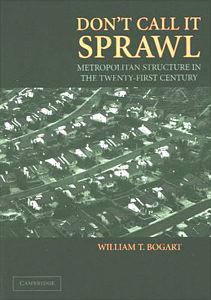No Light Rail in Vancouver!
Cities Are Trading Places

“Public policy that reinforces autarky only makes matters worse,” economist William Bogart told the Preserving the American Dream conference. Which, naturally, provoked the question, “What is autarky?”
The answer is that autarky means self-

Bogart’s book argues that cities are primarily “trading places,” meaning that people use them to trade goods and services — but also sometimes using the double meaning that some parts of the cities have traded places with others (e.g., major shopping areas are no longer downtown, but more residents are moving back to downtown).
Many planners are trying to make neighborhoods more self-
One problem with this ideal is that competition is an essential factor in ensuring that businesses serve consumers. If we all shop only at the stores nearest to us, that competition is gone and the stores will lose their edge. Anything that restricts that competition — congestion, restrictions on where businesses can locate, ordinances prohibiting chain stores — reduces the health of urban areas and the economy.
Bogart says some other interesting things, including “Public policy that interferes with adaptive reuse of existing infrastructure is counterproductive.” But his main message is that urban areas are very complex places — so complex that any attempts to plan them end up oversimplifying them and eliminating the complex structures that make them work.
7
Trackback • Posted in Regional planning
Reprinted from The Antiplanner